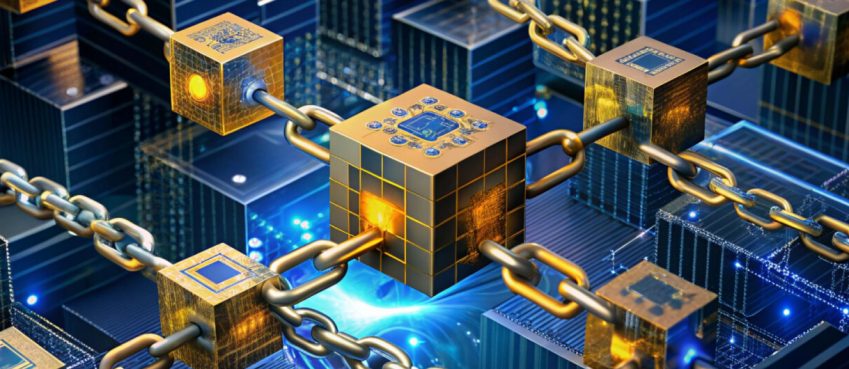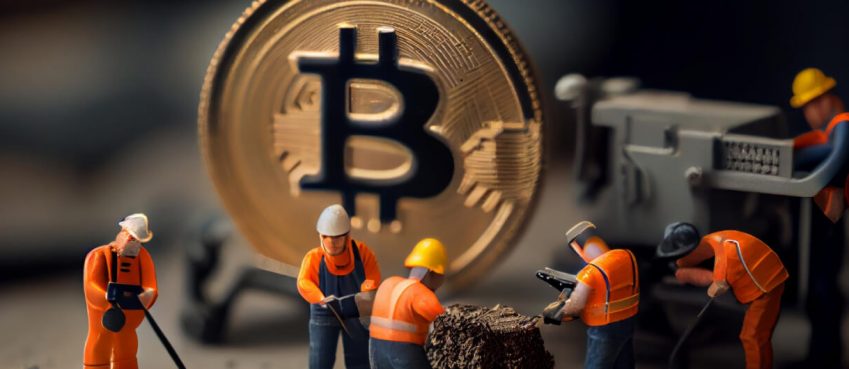
Blockchain is, as the English translation suggests, the blockchain. These groups contain information. The purpose of Blockchain is to maintain unique, unalterable records for each data chain.
The history of Blockchain can be traced back to 1991 when Stuart Haber & W. Scott Stornetta published the first work on a cryptographically secure blockchain.
Haber and Stornetta aimed to develop mechanisms that could create digital seals and order files uniquely and securely. This was a practical computational solution to the organization and management of digital documents that could not be altered or manipulated.
Its popularity grew in 2008 when the cryptocurrency Bitcoin was introduced. However, it is also being used for commercial purposes, with an estimated 51% annual growth for 2022.
It could be applied to the crypto-world, as it functions as an accounting record sheet. However, once information has been entered, it is difficult to change (for instance, Bitcoin was built using Blockchain technology).
What is a Blockchain?
The Blockchain keeps the transaction data public. However, the data of participants is anonymously protected because their identities are encrypted.
Each block is composed of three elements, which makes the data verifiable.
- Information about the block
- Each block’s hash (a unique code that acts as a fingerprint for the group or cluster)
- The hash will show the information for the previous and next blocks.
- Information: The block stores the data that is associated with the application.
In Bitcoin‘s case, the block includes details about the
transaction between the sender (or receiver) and the number of coins.
The fingerprint, also known as the hash , is a combination of letters and numbers that is used to identify the block’s content.
The previous block’s footprint is what reaffirms Bitcoin’s security.
Because if anyone attempts to modify a block they will alter its footprint, invalidating the rest. Each block has the footprint from the previous block so they would be able to recognize any modifications.
Even with security locks, it is possible for someone to modify the fingerprints of both the front and rear blocks by using a computer capable of processing hundreds of fingerprints per seconds.
To address this problem, Blockchain uses a mechanism called “proof of work”. The system audits the entire chain it created and detects any alteration. If the block is not created, the system will review it. In other words, it would check the entire chain and determine if there was an alteration.
The Blockchain doesn’t use a central server.
Instead, it uses a distributed system through the computers of everyone who participates. Each computer is called “a node” and each network holds an exact copy. This ensures that information is always available.
An attacker can cause a denial-of-service attack by deleting all nodes in the network. It is sufficient that at least one node is active for the information to be accessible. All nodes contain the exact same information so it is nearly impossible to alter it. This will ensure its integrity.
An attacker could modify the information on the Blockchain. They would need to change the entire chain in at most 51% of nodes. This is expensive and difficult.
Blockchain allows data to be distributed across all nodes in the network. Everyone participates equally in storing and validating the data, since there is no central node. This is a powerful tool for communicating and storing information in a reliable manner. It is not dependent on any company providing the service.
This technology is a great tool for practical applications. It streamlines some of the most complex and common processes and generates trust between all parties.
We now have a new technology that has enormous evolutionary potential like electricity and the Internet. What do you think?
Top 10 News
-
01
Top 10 Deep Learning Multimodal Models & Their Uses
Tuesday August 12, 2025
-
02
10 Google AI Mode Facts That Every SEOs Should Know (And Wha...
Friday July 4, 2025
-
03
Top 10 visionOS 26 Features & Announcement (With Video)
Thursday June 12, 2025
-
04
Top 10 Veo 3 AI Video Generators in 2025 (Compared & Te...
Tuesday June 10, 2025
-
05
Top 10 AI GPUs That Can Increase Work Productivity By 30% (W...
Wednesday May 28, 2025
-
06
[10 BEST] AI Influencer Generator Apps Trending Right Now
Monday March 17, 2025
-
07
The 10 Best Companies Providing Electric Fencing For Busines...
Tuesday March 11, 2025
-
08
Top 10 Social Security Fairness Act Benefits In 2025
Wednesday March 5, 2025
-
09
Top 10 AI Infrastructure Companies In The World
Tuesday February 11, 2025
-
10
What Are Top 10 Blood Thinners To Minimize Heart Disease?
Wednesday January 22, 2025







